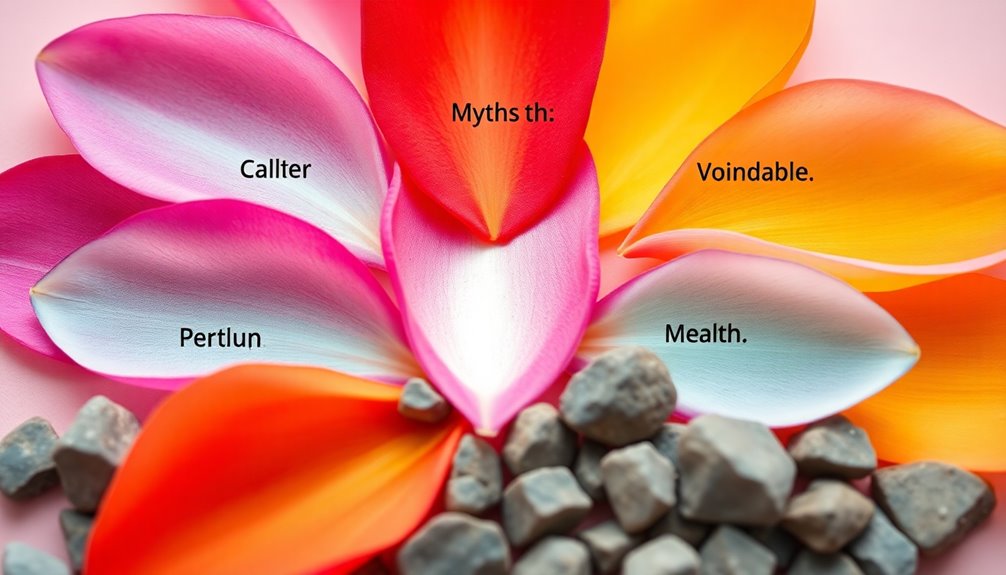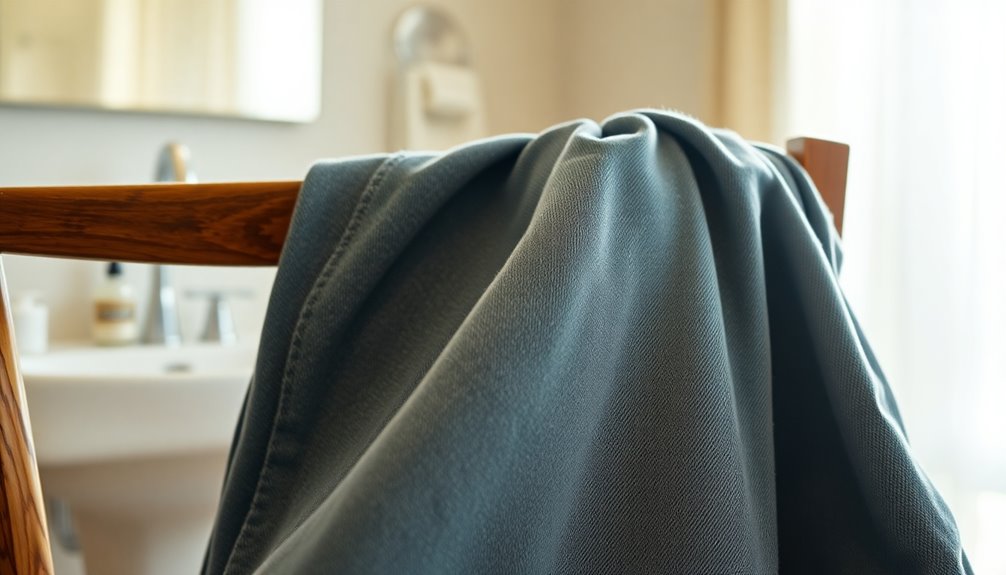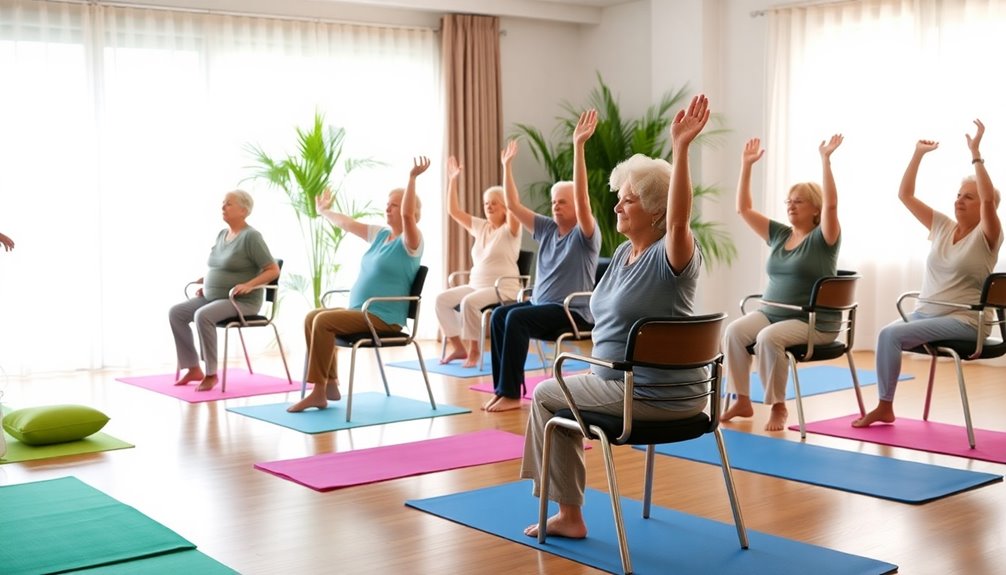Loose vagina myths often mislead you about your body. Many believe that sexual activity permanently changes vaginal tightness, which isn't true. The vagina can stretch but always returns to its original shape, thanks to its elastic walls. Factors like age, childbirth, and hormonal changes play a more significant role in elasticity. It's essential to understand that lifestyle choices, including pelvic floor exercises, can help maintain vaginal health. The truth is often more nuanced than the myths suggest. If you're curious about how to support your vaginal health effectively, there's plenty more to uncover.
Key Takeaways
- The vagina naturally returns to its original shape after sexual activity or childbirth, debunking the myth of permanent looseness.
- Losing virginity does not cause lasting changes; vaginal elasticity is a normal characteristic.
- Childbirth and aging are the primary factors affecting vaginal tightness, not regular sexual activity.
- Vaginal elasticity can be influenced by lifestyle choices, such as pelvic floor exercises and overall health.
- Myths surrounding vaginal looseness often stem from societal pressures rather than scientific evidence.
Understanding Vaginal Anatomy
Have you ever wondered what makes up the vaginal anatomy? The vagina is a remarkable structure, averaging 3 to 4 inches in depth but capable of stretching greatly during intercourse and childbirth. Its elastic walls guarantee it can return to its original shape, thanks to the powerful vaginal muscles and muscular structure surrounding it.
The vaginal canal plays an essential role in reproductive health, serving as a passage for menstrual flow, sexual intercourse, and childbirth. Additionally, the vagina maintains a pH balance between 3.8 and 4.5, creating a healthy environment that helps prevent infections.
Natural lubrication produced by vaginal glands is vital for comfort during sexual activity, enhancing pleasure and overall vaginal health.
It's significant to mention that the vagina can adapt to various changes, whether due to hormonal shifts or changes in sexual activity frequency, all while maintaining its elasticity.
Understanding these aspects of vaginal anatomy can debunk myths about vaginal looseness and highlight the incredible resilience of your body. Embracing this knowledge empowers you to take charge of your reproductive health confidently.
Factors Affecting Vaginal Elasticity

Several factors can influence vaginal elasticity, and understanding them is vital for maintaining reproductive health. Age is an important factor, as decreased estrogen levels during menopause can lead to reduced flexibility and lubrication.
Childbirth can also impact vaginal muscles, with multiple vaginal births often stretching them; however, the vagina usually regains its shape within a few months post-delivery.
Additionally, hormonal fluctuations related to your menstrual cycle can affect vaginal tone and lubrication levels. Genetics play a key role too, as some women may naturally have tighter or looser vaginal tissues.
Lifestyle factors also contribute greatly to vaginal elasticity.
Consider these key influences:
- Pelvic floor exercises: Strengthening these muscles can enhance vaginal tone.
- Overall health: Maintaining a healthy lifestyle supports hormonal balance and elasticity.
- Estrogen levels: Monitoring these can help in managing changes during menopause.
Myths About Vaginal Looseness

Understanding the factors that affect vaginal elasticity can help dispel common myths surrounding vaginal looseness. One prevalent myth is that sexual activity permanently loosens the vagina. In reality, the vaginal muscles naturally return to their original shape after intercourse. This adaptability is a demonstration of the vagina's design, which allows it to stretch and adjust.
Another misconception is that losing your virginity causes lasting vaginal looseness. This idea is unfounded, as the vagina is built for elasticity. Factors such as childbirth, aging, and hormonal changes play a much more significant role in vaginal tightness than sexual activity does. Regular sexual activity doesn't lead to cumulative loosening; instead, the vagina maintains its elasticity regardless of how often you engage in sexual activity.
It's important to recognize that myths about vaginal looseness often arise from societal pressures and misconceptions rather than scientific facts about female anatomy. Focusing on your pelvic floor health and understanding your body can empower you to combat these myths and embrace the natural functions of your vagina.
Childbirth and Aging Impacts

During the shift of motherhood, many women notice changes in their vaginal elasticity due to childbirth. While it's common for vaginal muscles and tissues to stretch considerably during delivery, most women return to their pre-birth size within a few months postpartum.
However, aging plays a substantial role in vaginal health. As you age, the decline in collagen and estrogen levels can lead to decreased vaginal elasticity, thinning tissues, and dryness.
Consider the following factors:
- Multiple vaginal births may result in more pronounced changes in vaginal tightness and pelvic floor strength.
- Hormonal fluctuations during menopause can exacerbate vaginal looseness and dryness, impacting overall vaginal health.
- Regular pelvic floor exercises, like Kegel exercises, can help maintain vaginal tightness and counteract the effects of aging and childbirth.
It's essential to understand that while childbirth and aging can affect vaginal tightness, you're not alone in experiencing these changes.
Maintaining Vaginal Health

Maintaining vaginal health is essential for every woman's overall well-being. Regular gynecological check-ups are vital for early detection and prevention of potential issues, ensuring your reproductive wellness.
Strengthening your pelvic floor muscles through Kegel exercises can enhance vaginal tone and help you avoid future health concerns.
A healthy lifestyle plays a significant role in vaginal health, so make sure you're incorporating regular exercise and a balanced diet. These habits not only improve pelvic floor strength but also support your body's overall functioning.
It's important to be aware of hormonal changes, especially during menopause, as they can lead to symptoms like vaginal dryness and reduced elasticity. If you notice these changes, consulting a healthcare professional about hormonal treatments can be beneficial.
Additionally, stay vigilant for any unusual discharge or odor, as these could indicate infections or other medical conditions.
Frequently Asked Questions
Can Kegel Exercises Really Tighten the Vagina?
Yes, Kegel exercises can help tighten the vaginal muscles. By regularly practicing these exercises, you strengthen the pelvic floor, which may enhance muscle tone and improve overall vaginal support. Consistency is key to seeing results.
Does Vaginal Looseness Affect Sexual Pleasure for Partners?
Imagine a well-tuned instrument; every nuance matters. Vaginal looseness can influence sexual pleasure, but it's not the sole factor. Connection, communication, and technique often play a more significant role in enhancing mutual enjoyment.
Are There Products That Can Help With Vaginal Tightness?
Yes, there are products designed to help with vaginal tightness. You can explore options like pelvic floor exercises, vaginal cones, or specialized gels. These can enhance your experience and improve muscle tone effectively.
How Does Menopause Impact Vaginal Tightness?
When menopause hits, it's like a sudden desert breeze—dryness and hormonal changes can lead to decreased elasticity and tightness. You might notice changes, but various solutions can help restore comfort and confidence.
Is There a Link Between Contraceptives and Vaginal Elasticity?
There's no direct link between contraceptives and vaginal elasticity. While hormonal changes can affect moisture and comfort, they don't necessarily alter tightness. If you have concerns, consult your healthcare provider for personalized advice.
Conclusion
In summary, it's vital to debunk the myths surrounding vaginal looseness. Remember, your body isn't defined by outdated perceptions or whispers from centuries past. Maintaining vaginal health is about understanding your anatomy and recognizing that factors like childbirth and aging are natural parts of life. Embrace your body's changes, and prioritize your well-being. When you know the facts, you can confidently dismiss the fiction and celebrate your unique journey. You deserve that empowerment.









